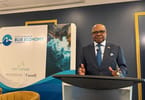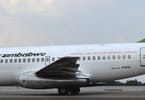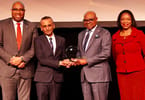They sing Amazing Grace!
Globalization has, and will always have, its advocates and detractors. However, we are still left to wonder: will globalization outlive COVID-19?
The Covid-19 pandemic has reduced our movements and enhanced remote working, significantly reducing air pollution in many urban areas. This “new normal” can teach us how to better respect our planet while still being productive, starting from academic research.
More than two months have passed since we adopted this “new normal”, and we can now analyze the effects of this new behavior on the environment. Let’s first look at air pollution. The European Space Agency has compared the air pollution over Europe during the last month with that measured during the same period in 2019 when there were no restrictions in movements. It turns out that air pollution has decreased by 50% in many urban areas, with benefits for both our health and that of our planet. In fact, air pollution kills more than 4 million people every year and significantly contributes to climate change through carbon dioxide, airborne particles, and other greenhouse gases. Similar results applied to other parts of the world, such as China.
Amazing Grace can be heard every new year in places around the world. Today you hear it from ordinary people in 50 countries affected by COVID-19:
Amazing Grace, The Story behind the song
Written almost two and a half centuries ago in 1772, the words for the beloved song were borne from the heart, mind, and experiences of the Englishman John Newton. Knowing the story of John Newton’s life as a slave trader and the journey he went through before writing the hymn will help to understand the depth of his words and his gratefulness for God’s truly amazing grace.
Having lived through a rather unfortunate and troubled childhood (his mother passed away when he was just six years old), Newton spent years fighting against authority, going so far as trying to desert the Royal Navy in his twenties. Later, abandoned by his crew in West Africa, he was forced to be a servant to a slave trader but was eventually rescued. On the return voyage to England, a violent storm hit and almost sank the ship, prompting Newton to begin his spiritual conversion as he cried out to God to save them from the storm.
Upon his return, however, Newton became a slave shipmaster, a profession in which he served for several years. Bringing slaves from Africa to England over multiple trips, he admitted to sometimes treating the slaves abhorrently. In 1754, after becoming violently ill on a sea voyage, Newton abandoned his life as a slave trader, the slave trade, and seafaring, altogether, wholeheartedly devoting his life to God’s service.
He was ordained as an Anglican priest in 1764 and became quite popular as a preacher and hymn writer, penning some 280 hymns, among them the great “Amazing Grace,” which first appeared in the Olney Hymns, printed by Newton and poet/fellow writer William Cowper. It was later set to the popular tune NEW BRITAIN in 1835 by William Walker.
In later years, Newton fought alongside William Wilberforce, leader of the parliamentary campaign to abolish the African slave trade. He described the horrors of the slave trade in a tract he wrote supporting the campaign and lived to see the British passage of the Slave Trade Act 1807.
And now, we see how lyrics like:
I once was lost,
but now am found,
Was blind
but now I see.
Through many dangers, toils, and snares
I have already come.
‘Tis grace hath brought me safe thus far,
And grace will lead me home.‘Twas grace that taught my heart to fear,
And grace my fears relieved;
How precious did that grace appear
The hour I first believed.
Modern interpretations
When we’ve been there ten thousand years,
Bright shining as the sun,
We’ve no fewer days to sing God’s praise,
Than when we first began
Globalization has, and will always have, its advocates and detractors…However, we are still left to wonder: will globalization outlive COVID-19? Unite For Our Future, which calls on world leaders to fund COVID-19 relief for anyone who needs it.
The Russian Embassy in Washington has a message on its website: United We Are Stronger Than Covid-19
Palau Ambassador to the United Nations Ngedikes Olai Uludong shares to CNN Philippines the early shutdown of borders and testing its citizens are the secrets why Palau is still a COVID-19 free nation
How Covid-19 could redesign our world?
In order to go back to “normal life” – and to use public or communal spaces – people must feel physically safe and trust that others are looking after their safety, too.
For right now, the travel and tourism world can sing Amazing Grace together!
Dr. Taleb Rifai, the former Secretary-General for the World Tourism Organization (UNWTO), who is a Muslim and lives in Jordan, forwarded this song to his friends.
#rebuildingtravel
WHAT TO TAKE AWAY FROM THIS ARTICLE:
- He described the horrors of the slave trade in a tract he wrote supporting the campaign and lived to see the British passage of the Slave Trade Act 1807.
- On the return voyage to England, a violent storm hit and almost sank the ship, prompting Newton to begin his spiritual conversion as he cried out to God to save them from the storm.
- Knowing the story of John Newton’s life as a slave trader and the journey he went through before writing the hymn will help to understand the depth of his words and his gratefulness for God’s truly amazing grace.






















